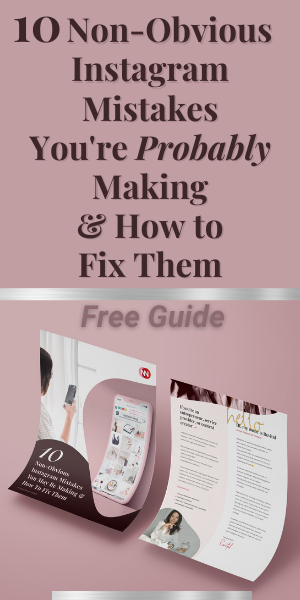The
American Federal Trade Commission (FTC) requires advertisers and
endorsers (i.e. publishers, bloggers and influencers) to disclose their
relationships when promoting any affiliate content, or receiving something in
exchange for their promotion method, such as:
- Receiving commission if someone uses your affiliate link.
- Receiving a product or compensation in exchange for writing a post on your blog or on your social media (sponsored content).
If
you are one of those who aren’t sure about using affiliate marketing because you
fear scaring people away by coming across as a pushy sales person or because you
think people won’t be interested, you may also feel reluctant about having to
disclose your relationship with companies. Well, this is not an option. This
disclosure is required by law and has become the standard of the Terms of Use
of all affiliate networks and affiliate programs you may be associated with. Affiliate
networks reserve the right to terminate your account with them and disclaim any obligation to pay you your
earnings if you don’t comply with the FTC regulations related to advertising, and in particular the FTC Endorsement
Guides.
For
those of you not familiar with affiliate marketing, you may want to start by
reading our post about The Basics for Affiliate Marketing in which we
explain the terminology, how affiliate marketing works, and some statistics for
understanding the ecosystem. You may also want to check out The Complete
Beginners’ Guide to Affiliate Marketing.
Why is an affiliate disclosure needed?
The
FTC regulations are meant to protect consumers from ads, testimonials and
endorsement being deceptive or unclear and disclose any relationship that may
have influenced an opinion or a review. The rational is to keep transparency and
encourage honest and genuine experience shared. When someone is being paid (in
any form of compensation) for the content and review written, that could
influence their judgement and honest opinion. Since they are influencing
people’s buying decisions, transparency should let consumers know about your
monetary compensation, so they can have a full picture on your relationship
with the brand you’re promoting.
However,
you should not let your fear of losing readers stop you from the potential of
making money blogging. Being upfront and honest with your readers is part of building
your long-term credibility and trustworthy relationships. You may want to read
more about How To Make Affiliate Marketing Work and Succeed as an Affiliate in
Any Niche in our other Affiliate Marketing Guides.
What is an
affiliate disclosure?
An affiliate disclosure is a statement that
lets your readers or followers know when affiliate links are being used on your
blog or on any other platform.
This statement should let your readers know that
you have something to gain from recommending a certain product or brand, so
that they can get a full overview of what your intentions might be. It’s only
ethical to let your readers know that when they purchase something through your
links, you get awarded a commission for that purchase.
This post is only a summary of some of the
guidelines set by the FTC and you are advised to seek and obtain your own legal
advice on how these rules apply to your website or other promotional activities
for which you receive compensation.
What does the compliance with FTC
Endorsement Guidelines include?
The FTC requires disclosure of any material connection or relationship you
have with a merchant/advertiser when you endorse or promote a product or
service to your readers. Affiliate links are considered such a material
connection.
This
means that directories, reviews, blogs and other websites or emails that
purport to provide an endorsement or assessment of an advertiser must prominently
disclose the fact financial, or in- kind compensation, is provided from the
advertiser.
There are 3
things you should be aware of and agree to in order to comply with the FTC
Endorsement Guides:
- That you will at all times adhere to FTC Endorsement Guides;
- That your content and communications will reflect your honest views, opinions and experiences; and
- That you will disclose your affiliate relationship with the applicable affiliate network or program/advertiser when discussing such advertiser or its products, directly or indirectly.
Here is an example from Rakuten legal Agreement as to the 4 standards that needs to be met on all disclosures:
1. Disclosure should be frequent – Placing one disclosure on your home page or a link to one in your footer is not enough. Disclosures must be on every page of your site that has a review, recommendation, comment or article that promotes a product for which you receive any form of compensation.
2. Disclosure should be clear – The disclosure must make it clear right away to the reader that you are compensated for your review. You may include other information in your disclosure, such as whether you personally tested the product or that your review is honest, but you must disclose compensation first (at the beginning) and clearly. It should not be hidden in legalese.
3. Disclosure should be conspicuous – The disclosure must be conspicuous and easy to see on your site. It has to stand out from other text on the page so that it is immediately evident to all visitors. The disclosure text must be as large or larger than the main text. The disclosure text must be colored (not black or gray) and contrast with both with its background and the main text. It must not be lighter than its background or the main text. It must begin with the word "Disclosure:”
4. Disclosure should require no action – Your disclosure must be immediately visible to anyone who visits your reviews or endorsements. The visitor should not be required to take any action to view it. Such actions include: Scrolling (your disclosure must appear "above the fold,” meaning the visitor does not have to scroll down to see it) or clicking (visitors should not have to click a link to view your disclosure).
Here
are the FTC guidelines for best practices that need to be met when using
affiliate links. They are referred to as the 4Ps to help you focus on 4 key
considerations:
1. Prominence – Is the disclosure big enough for consumers to read easily? Disclosures must be in a font of the same size as the rest of your post. Use big enough fonts that users can easily read and consider contrast, too. White text on a light or variegated background isn’t likely to be noticed. Nor will a fine-print statement that has to compete with a dynamic and distracting image.
2. Presentation – Is the disclosure worded in a way that consumers can easily understand? Using legalese or technical terminology reduces the likelihood that consumers will get the message. Disclosures must be obvious, not buried in a long paragraph of unrelated text or hashtags.
3. Placement – Is the disclosure where consumers are likely to look? The disclosures must be next to the content to which it relates to; a viewer should not need to scroll to view the disclosure or only be accessible by clicking a link (referring to your disclaimer, about me or bio pages). The bottom of the page or screen isn’t a place most consumers will look.
4. Proximity – Is the disclosure close to the claim it modifies? Make sure the disclosure is not distant from the prominent headline.
How to phrase
your affiliate disclosure on your blog and social media?
Disclosure on a blog post should specifically state that you get
commission for purchases or clicks made through links in this post.
Here is an example of a disclosure statement that is requested by eBay’s
legal terms: "When you click on links to various merchants on this site
and make a purchase, this can result in this site earning a commission.
Affiliate programs and affiliations include, but are not limited to, the eBay
Partner Network.”
Types of Disclosures for affiliate links used in social media posts can
include: #ad, #CommissionLink, #affiliatelink. For sponsored posts it can be:
#sponsored, #advertising.
Here is eBay’s guidelines for posts on your social media channels
(including, but not limited to Facebook, Twitter, and Instagram): "any post
must include #ad, #advertisement, #sponsored, or something similar at the
beginning of the post to clearly and conspicuously disclose the posts are an
advertisement.”
Lastly:
* Please
note that if the post is sponsored, it should also include the sponsors name.
* If you have further questions
about how to comply legally, you may want to check the What People Are Asking
Guide released by the FTC to read more information.
* And again, this post is only meant to bring to your attention some of the requirements by the FTC. You should seek and obtain your own legal advice on how these rules apply to your website or other promotional activities for which you receive compensation.








You can choose to comment as a guest.